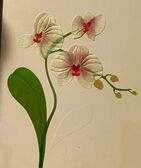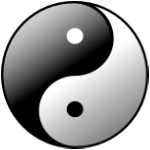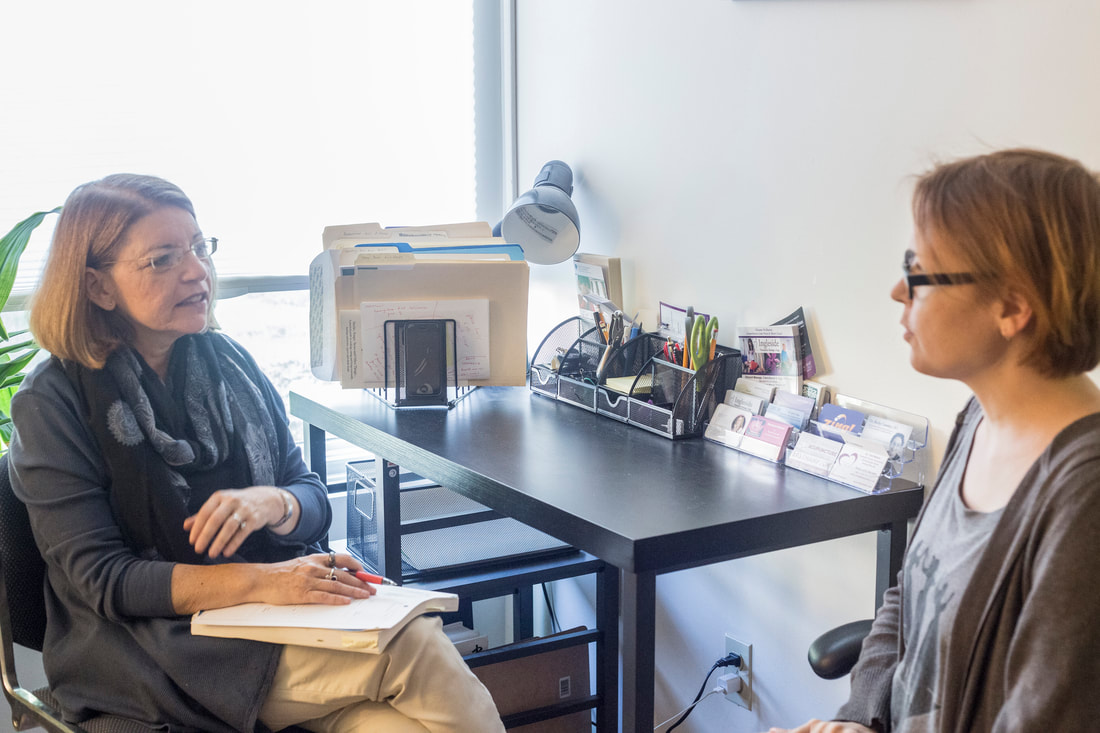 Have you ever had the experience of going on vacation and finding that whatever aches and pains you had been experiencing go away? You’re freed of responsibility, given time to enjoy yourself and suddenly you feel healthier. This is your spirit, alive and well. East Asian Medicine refers to the spirit as an essential part of our being. In this system of medicine, all the organs have a physical, emotional and spiritual element. The heart is the ruler of the different spiritual elements. It houses the Shen, translated as mind or spirit. It is our consciousness and vitality. When the Shen is in balance, there is ease and joy in our lives. This sense of ease then spreads to all of the other organs. The spirit isn’t some woo woo thing. It’s one of the most powerful aspects of our being. And the spirit isn’t just something that we are given at birth. It can be strengthened at any point in our lives. In the next few emails, I’ll talk about practices that make our spirits stronger. I had to lean into these practices while I was waiting for a kidney donor. I would notice the sunshine coming in through the window, moments when I was able to feel at peace, times when friends and family reached out to offer support. I had to keep telling myself that things would work out okay. The easiest way to access your spirit is to close your eyes. In your mind take yourself to a place where you feel fully alive and at peace. You may need to scan your life to find this place. Think of moments when you were truly happy. When you have found this place, notice all the details in your surroundings. What is the weather like? What do you see? What do you feel? Is there anyone with you? Then check in with your body. Notice how you feel when you imagine yourself in one of your favorite places. Remember that you can return to this place in your imagination whenever you want to. In your favorite place, it becomes easier to feel the rhythm of your heart. When you feel this rhythm, you create an opening, a safe place, for healing to happen. Your spirit comes alive. You may feel a sense of hope and possibility. Interested in deepening your relationship to your spirit and learning practices to heal when you are in need surgery or medications? I’m offering an online workshop with River Valley Coop, “An Acupuncturist’s Approach to Integrative Care” on April 17th at 6:30pm. You can register here. In your most difficult moments, may you find light and strength. With you on the journey, Bonnie
0 Comments
 If you’re part of the over 60% of people who make New Years resolutions with good intentions but are unable to keep them, this newsletter is for you. You mean well, you try hard, but life gets in the way. Think of a resolution as a seed that gets planted. We have an idea. We want to make a change in our life. We’re excited. We set goals, make promises, tell ourselves this year we’ll eat our vegetables, exercise more, be kinder. We truly mean these things. Yet for many of us by April we’re back to our same old habits. What has happened? I think that we have forgotten to nurture the seed. No one expects a seed to grow without water and sun. And no one expects the seed we plant today to turn into a full grown tree tomorrow. Growth and change take time. When you make a resolution, ask yourself these questions:
Take time to answer these questions. It may require many hours. Pay attention to how easy or difficult this process is. Write your answers down. If you’re not able to do this, you might want to pick a new year’s resolution that is easier to implement. With nurturing and care and love our dreams will take form. Do get in touch with me if you need help in this process. Wishing you a healthy, happy and prosperous New Year! Bonnie "With time and patience the mulberry leaf becomes a silk gown" ~Chinese Proverb  I traveled to New Orleans a few weeks ago. I knew I had truly arrived when our Lyft driver said "How ya doing, Miss Bonnie?" I had made a lunch reservation and when we arrived I was greeted with "Welcome, Miss Bonnie." On a shuttle bus to Mardi Gras World the driver asked if this was my first time in New Orleans. When I said it was my second, he replied "Welcome Home." New Orleans is a great place to travel to. The food, music, warm weather, welcoming people make it so special. Being there feels like getting a big hug. But I want to tap into something deeper. The importance of social connection. Not just because it makes us feel good -- although this is important. But because it makes us healthier. Here's what the experts have to say:
Here is "Miss Bonnie's" take on all this:
One of the reasons that I love Eastern Medicine is because of its emphasis on connection. In the 5 element/5 organ system that we use no one organ/element exists on its own. The energy of the liver feeds the heart, the heart energy feeds the spleen, the spleen energy feeds the lungs, the lung energy feeds the kidneys, the kidney energy feeds the liver. The cycle is completed and begins again. As people we may feel isolated, but we never exist in true isolation. With you in spirit… Bonnie Sources: www.nytimes.com/2017/12/11/well/mind/how-loneliness-affects-our-health.html https://well.blogs.nytimes.com/2013/05/13/shaking-off-loneliness/ www.apa.org/news/press/releases/2017/08/lonely-die.aspx www.nytimes.com/2016/12/22/upshot/how-social-isolation-is-killing-us.html  Katherine Golub Katherine Golub I love this article from my colleague, Katherine Golub, career / business / leadership coach and consultant in Western Mass. She teaches us how to focus on the postitive! To learn more about her work, visit www.CoreBrillianceAcademy.com What are you dreaming of for the new year? Did you make a resolution, set an intention, choose a word? At the beginning of every year, I like to choose one word to focus my attention for the year. This year, my word is "Foundation." No matter how you set your intentions, January is a time of fresh starts and new beginnings for many people. Do you want to learn how to be more confident, more present, or more creative? Perhaps you want to take better care of yourself. Whatever it is, if you’re like most people, I'm guessing that there's probably some new habit that you’d like to develop this year. Most of us aren’t taught how we form habits or how we can change them, and because of that, developing new habits can feel daunting. I'm happy to tell you that, in fact, developing new habits and strengths can be simple. Instead of working super hard to fight against old behaviors, it can be much more useful to just take in the good. What do I mean by “taking in the good?” In Hardwiring Happiness, Rick Hanson writes that the most effective path to developing emotional habits or strengths such as gratitude, presence, and confidence is to notice when you're already engaged in these habits and then to feel how you feel in your body. He calls this process “taking in the good.” With repeated, intense, and prolonged mental focus on what’s working, you grow new synapses and change how your DNA functions so that you literally experience more of what works. For example, by noticing when you feel confident, you strengthen your ability to feel confident. When you notice yourself feeling focused, you increase your ability to focus. When you allow yourself to feel really good when you practice self-care (even if it’s just for five minutes), you increase the likelihood that you'll practice self-care again soon. As human beings, we too often focus on what we don’t want to do or to feel. Unfortunately, focusing on what you don’t want makes it harder to develop the habits you do want. For example, trying to figure out how to be "not stressed" can stress you out, even more. The brain can't think in negatives. Don't think of a pink elephant. You can't do it, right? Every time you think about what you don't want, your focus goes to the negative, and you're more likely to replicate that. Instead, when you think about what you do want, you send your energy in that new, more generative direction. So, what are the steps to taking in the good and building new habits? Your first step to cultivating new habits or strengths is to choose one or two to focus on. Rather than focusing on the habit you want to let go of, focus on the habit you want to cultivate. Keep in mind that your problem requires a matched solution. For example, if you struggle with the state in the left column, consider focusing on the habit or strength in the right column-- • Exhaustion… Energy • Stagnation… Movement • Anxiety… Ease • Fear… Courage • Shame… Self-Compassion • Resistance… Curiosity • Withdrawal… Engagement • Scarcity… Gratitude • Frustration… Fulfillment • Stuckness… Forward Movement • Drivenness… Pleasure • Rejection… Belonging • Isolation… Connection • Grief… Love Your next step is to notice moments in which you experience the habit or strength you desire. To develop the habits and strengths we desire—such as trust, humor, and ease—we need to notice when we experience these positive states. Often, we’re already engaging in the actions or experiencing the states that we want to make habitual, but we’re not paying attention. By paying attention to when we are acting and feeling the ways we want, we strengthen our ability to act or feel this way even more. If you don’t naturally find yourself experiencing your desired emotions, you can remember past experiences, imagine the future you desire, or celebrate the good in the lives of others. Once you create a positive experience, allow yourself to really savor the moment and experience it in your body. Sense the experience fully in your body, taking in as many sensory aspects as possible—sight, sound, touch, smell, taste, feeling, and thinking. Feeling the experience in your body helps it to sink in and create new connections in your brain. Like any new strength, your ability to focus your attention is like a muscle. It gets stronger the more you exercise it. Taking in positive experiences makes your brain “stickier” for them, which in turn increases the likelihood that you'll notice more positive experiences. That makes your brain even more sticky so that you notice positive experiences more. It's a feedback loop of positivity. This cycle makes it less and less likely for negative experiences to slip into your mind and affect your brain. From now on, any time you experience a small win, seize the opportunity to celebrate. When you receive a compliment, take a deep breath, let it really soak in, and say thank you. Or cross off items off your to-do list as you complete them so that you have a picture of accomplishment. Or, at the beginning or end of each day, think of three things that you’re proud of, that you appreciate about yourself, or that brought you joy. Focusing on what brings you joy ten times a day, fifteen seconds at a time only, takes a total of two and a half minutes. But it's one of the most powerful ways to change your brain and your life. Whatever your hopes for the new year may be, I encourage you to gift yourself a few moments each day to take in the good. Not only is this a very effective way to cultivate new habits, but it’s also fun. I wish you all the best on your journey to building the habits you want!  My life’s work is helping people reclaim their power to heal. That’s right. Whatever your situation, however much pain you may be in, you have that power. When our lives go awry; when we get sick or suffer loss, it’s natural to think that we have no power. No one plans on pain. No one plans on illness. It can be devastating when we feel that our bodies have betrayed us. That’s how I felt many years ago when I was diagnosed with Chronic Fatigue Syndrome. I ate well and exercised. It was hard to understand how I could get so sick. Also, there was no clear path to recovery. To find my power, I needed to look outside of my current life experience. I needed another way of understanding the world. I found it with acupuncture. Here are some of the secrets I learned:
Whether you have a specific diagnosis, are feeling lousy for no apparent reason, or pulled a muscle, you deserve to feel listened to and receive treatment. I found my power to heal, and I want to help you find yours!  A healthy rhythm helps you to move in the direction of your dreams. This takes commitment, intention and a certain amount of effort. In the short-term this process may seem time-consuming and anxiety-provoking. But, what if you began living a life that supported your core values? What if it became easier to set and incorporate new goals? Here are some ideas for you to try out: • Make use of natural rhythms and listen to your body. Get enough sleep. Rest when you feel tired. If you’re a morning person, start your day with the things that are most important to you. Alternatively, set aside time in the evening if that’s when you work best. • Each week make a list of things that you want to accomplish. Review the list each morning and schedule in the most important items. This will help you stay focused and on track. • Keep things that are important to you on your list, even if you have trouble getting them completed. It can take time to incorporate new activities. Keep reminding yourself of the things that you want to do. • Fifteen minutes is better than none. My life revolves around this. I never have enough time to do everything – particularly exercise. Instead I fill in 15 minutes here and 15 minutes there. It adds up. Beginning is 90 percent of life. • Learn to choose wisely. There is never enough time to do all the things you might want to. Don’t fall into the trap of trying to do everything. As you add things to your life that you truly love, let the less essential things fall by the wayside. • Learn to say no. It’s important to honor commitments that you have made, but you needn’t feel obligated to do things simply because others would like you to. Unschedule the things on your calendar that are not so important to you. • Create rituals that incorporate your favorite activities. Schedule them at regular times. This way you’ll know that every Monday at 7, for example, you’ll swim or listen to your favorite music. As with growing a garden, cultivating a healthy rhythm takes place over time. We wouldn’t expect an apple tree to bear fruit right after we plant the seeds. Be patient with yourself. Remember that there are outside forces that affect our lives. Some seasons the weather cooperates and there is sufficient rain and sun. Other times we are less fortunate. Part of being a successful farmer, is the ability to survive the lean seasons. It’s important not to get discouraged if life events wreak havoc with the best laid plans. Find joy in the planting and cultivating. Keep a certain healthy detachment from the results of your endeavors. Finding your rhythm gives you something even greater than accomplishing goals. It gives you the courage and strength to get through whatever life throws your way. It provides you with a safe harbor during unexpected storms. Most importantly it puts you in touch with your truest self. And so I encourage you to look for your rhythm, to practice living in connection with it and to be the person you were brought into this world to be.  Acupuncture is about balance, both in the outside world and inside our bodies. Yang – active, light, daytime energy – is balanced by yin – nurturing, dark, nighttime energy. When these two opposing forces are in balance there is health. As we go through life with its stresses and physical and emotional assaults we find ourselves in places of imbalance. The purpose of this newsletter is to help you bring your body back into balance. The principles that I recommend are applicable for all of us whatever our age, our health or our socioeconomic status. My basic belief is that we all can do things to bring ourselves closer to the goal of balance and that health is achieved one person, one action and one moment at a time. Balance is something that you arrive at by slowly shifting your focus and attention, with a lot of compassion. This newsletter is not about extreme interventions, the latest fad diet or exercise. Rather it is about slow and steady change. The kind of change that occurs day to day and becomes the habits that form the foundation of a healthy balanced life. The following steps will take you through the process of choosing and integrating one habit that will enhance your life in a positive way and become a part of this foundation. Create Your Activity 1. Choose Wisely Choose something you want to do, rather than something you think you should do. Choose something that you want to do tomorrow and also three years from now. Choose an activity that you can do given the present circumstances and resources of your life. If, for example, you want to join a gym make sure there is one that you can easily get to and that is open at hours that are convenient for you. Make sure that you can afford the cost of membership. I believe that each of us already knows of at least one thing we can do to improve our lives. If you have a long list of things, choose the one that feels most meaningful to you. 2. Think Small, Stay Simple Begin with a small, achievable task rather than elaborate, unattainable goal. Focus on the task itself. If you dream of writing a novel, you might want to begin by setting aside a certain amount of time each day to write. Focus on the activity, rather than the goal. Goals are admirable, but generally achievable only if we focus on the activities that are necessary for their fruition. Thoreau said, “Success usually comes to those who are too busy to be looking for it.” 3. Be Creative Sometimes we are in situations where we are unable to do the things we want to. Here’s where creativity comes into play. If your activity is to spend an hour each week at the ocean but you live in landlocked Iowa, you might get a video of ocean scenes, a CD with the sound of waves breaking on the sand, suntan lotion and some shells. Develop Intention 4. Commit to the Activity Commit to spending at least one hour each week on this activity for the next three months. This can be 10 minutes everyday, 20 minutes three days a week or one hour once a week. If you cannot or do not want to commit to one hour a week, choose something else. If you are already committed to spending time each week that supports a balanced life, than commit to bringing more attention to that time. (See Step 10.) 5. Write It Down There is something about the act of writing something down that solidifies it. It serves both to define the action and as a symbol of intent. There is a shift that happens when something goes from idea to tangible form. There are many ways of writing something down. You can do it very privately, on a folded up piece of paper or in a journal. You can write something and put it on your mirror or refrigerator. If you like, you can email me ([email protected]) your action and I will check in with you in a month to see how you are doing. Just as the action itself comes from an inner, personal space so will the writing of it. Do what feels right to you. 6. Begin If this activity is worth doing, it is worth doing now (or at least within this week.) This piece is often the most difficult. Waiting for the perfect moment may mean putting off something indefinitely. Just start now. 7. Begin Again None of us are perfect. Our lives are complicated. Stuff unexpectedly happens. So if you are unable for whatever reason to do your chosen activity for a day, a week or even a month, begin again. Learn from your experience. Sometimes it takes a few false starts to develop a good habit. In the long run you are better off starting again then giving up on something important to you in your life. I once read that the people who succeed the most are also those who fail the most. Winston Churchill said, “Success is the ability to go from one failure to another with no loss of enthusiasm.” 8. Get Help Bring into your life people who support you in your journey towards health whether it’s a friend, a medical care provider or a significant other. Sometimes we need help. Intervention is often necessary to keep our bodies healthy. 9. Reward Yourself Taking care of yourself is an accomplishment. Often our busy lives do not support choices that keep us healthy. Acknowledge the time and effort put into your new habit. Congratulate yourself. Tell your friends. Go wild! 10. Bring Intention to Your New Habit Rather than going through the motions, use your time each week to connect more deeply with yourself. Good health is a sensory experience. If you are eating healthier take this opportunity to fully taste your food. If you are spending an hour each week listening to music or looking at art, fully see or fully hear. Whatever you have chosen to do be sure to notice your breath. We cannot live for more than a few minutes without breathing. The quality of our breath, the way we breathe, to a large extent determines the quality of our lives. Whatever you are doing you are also breathing. As you embrace your newly chosen activity, breathe deeply into your lower abdomen. GO BACK TO STEP ONE Whether you have successfully integrated a new, healthy habit into your life or have experienced three months of hell, or most likely, are somewhere in between, go back to step one. Learn from your accomplishments as well as your mistakes. You now have the advantage of experience in this process. |
AuthorIn practice for over 20 years, Bonnie Diamond offers individualized, heart-centered care using a pain-free, Japanese style of acupuncture. Her work is influenced by her nine year struggle with and complete recovery from Chronic Fatigue Syndrome. Archives
April 2024
Categories
All
|
Serving Easthampton, northampton, Holyoke, Springfield, Chicopee, Westfield and Western Massachusetts
|
Hours are Tuesday-Thursday, 11am-7pm
|
247 Northampton Street, #27 Easthampton, MA 01027 781-718-6325 Get directions Get information on other complementary health resources recommended by Staying in Balance. Pioneer Valley Community Resources |
Copyright 2000-2022 All rights reserved.

